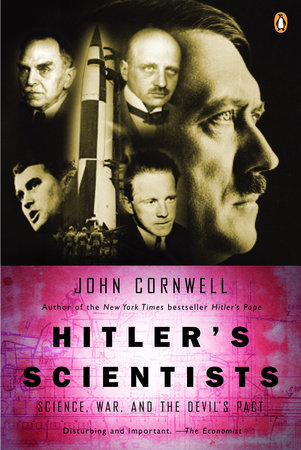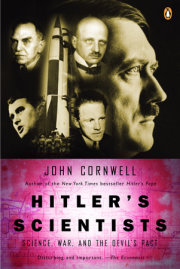List of Illustrations
Acknowledgments
Introduction: Understanding the Germans
Part One: Hitler's Scientific Inheritance
1. Hitler the Scientist
2. Germany the Science Mecca
3. Fritz Haber
4. The Poison Gas Scientists
5. The "Science" of Racial Hygiene
6. Eugenics and Psychiatry
Part Two: The New Physics 1918-1933
7. Physics after the First War
8. German Science Survives
Part Three: Nazi Enthusiasm, Compliance and Oppression 1933-1939
9. The Dismissals
10. Engineers and Rocketeers
11. Medicine Under Hitler
12. The Cancer Campaign
13. Geopolitik and Lebensraum
14. Nazi Physics
15. Himmler's Pseudo-science
16. Deutsche Mathematik
Part Four: The Science of Destruction and Defence 1933-1943
17. Fission Mania
18. World War II
19. Machines of War
20. Radar
21. Codes
Part Five: The Nazi Atomic Bomb 1941-1945
22. Copenhagen
23. Speer and Heisenberg
24. Haigerloch and Los Alamos
Part Six: Science in Hell 1942-1945
25. Slave Labour at Dora
26. The "Science" of Extermination and Human Experiment
27. The Devil's Chemists
28. Wonder Weapons
Part Seven: In Hitler's Shadow
29. Farm Hall
30. Heroes, Villains, and Fellow Travellers
31. Scientific Plunder
Part Eight: Science from the Cold War to the War on Terrorism
32. Nuclear Postures
33. Uniquely Nazi?
34. Science at War Again
Notes
Select Bibliography
Index















